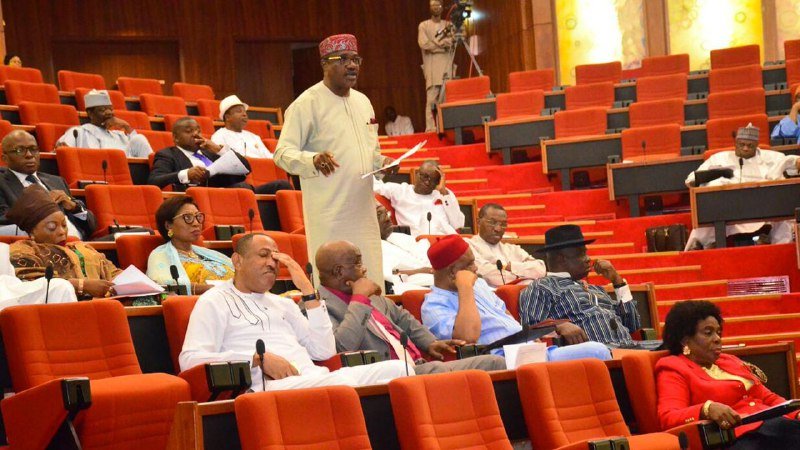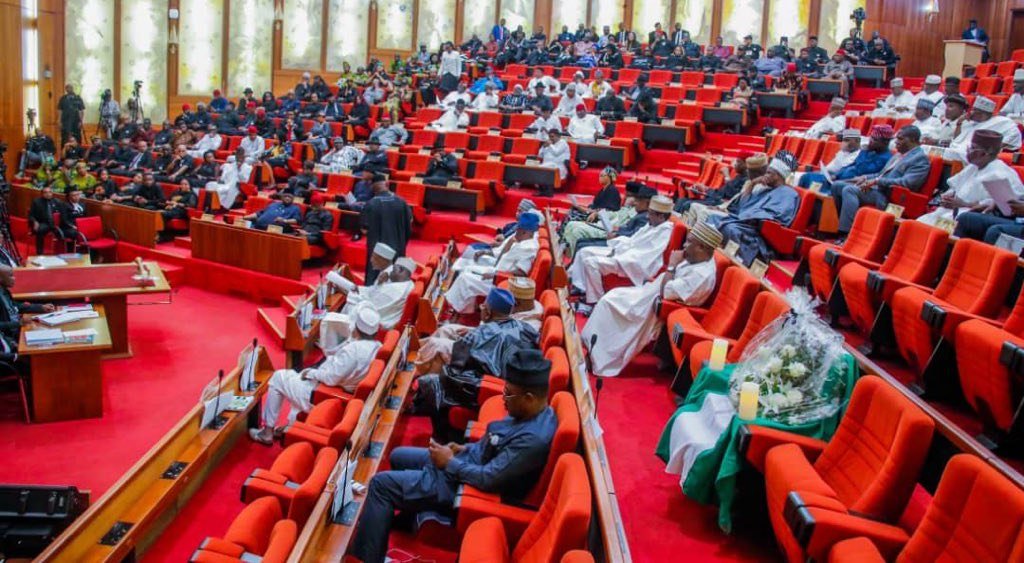Slightly above 2,000 years ago in the country of the Gerasenes near Galilee, there was this story of the encounter between Jesus Christ and a man possessed by demons who pleaded with Jesus not to torture them.

Rather, the evil spirits in him requested that they be sent into a large herd of pigs feeding on the mountain. This, Jesus, obliged them and they went into the pigs resulting in their charging down the cliff into the lake where they drowned.
I am not sermonising here. Instead, I want to draw an analogy between an incident that happened in that tiny city more than 20 centuries ago and the happenings in our country in the contemporary era.
I am using demon here as a leitmotif to represent any object that is retrogressive in nature; any idea or movement that is anti-people or works against the well-being of either an individual or a society; anything that is a killjoy.
The demons in Jesus’ story worked against the man they possessed; preventing him from living his normal life. They worked against any rationale of the man being human in the true sense of the word. God so blessed our country, so much so that no individual should be in want in life.
One of the resources with which He blessed Nigeria is petroleum or oil. In 1958 when oil was discovered in commercial quantity in Oloibiri in present-day Bayelsa State, Nigerians thought the era of bliss and abundance has come. But that is not to be.
Just as the promise of independence has not materialised for the majority of Nigerians, even as the freedom from colonial domination and the desire for prosperity have been translated into a nightmare of myths. This is the negation of the promises of independence.
The hope of the discovered Oloibiri Oil (I chose this phrase) to help in enhancing the well-being of Nigerians, it rather has deepened the destitution of the people, especially those areas from where the oil is exploited.
This is because the management of the petroleum sector has been topsy-turvy. Part of the confusion is the dissensions that have trailed what has been termed criminal neglect of the oil-producing communities. Though government and some technocrats in the oil sector are not unmindful of these drawbacks, as they have enunciated more than a few policies and programmes to make the sector work, yet still, it remained largely unviable.
One of the ideas proffered as a solution to the myriad glitches confronting the sector is the Petroleum Industry Bill, PIB, which is said to be the most talked-about piece of legislation given the far-reaching reforms which it proposes to an industry that is the single most important contributor to the nation’s economy.
The bill introduced in December 2008, is yet to go beyond the second reading. It should be noted that the several committees have been inaugurated to find a lasting solution to the oil and gas industry that has been gnawed by seemingly insoluble hiccups.
One of them was the Oil and Gas Sector Reform Implementation Committee, OGIC, inaugurated on April 24, 2000, which was chaired by the late Dr. Rilwanu Lukman (then serving as the Presidential Adviser on Petroleum and Energy).
The committee was mandated to make recommendations for a far-reaching restructuring of Nigeria’s oil and gas industry. The recommendations of OGIC included a proposal to separate the commercial institutions within the industry from the regulatory institutions. In 2007, the government introduced the National Oil and Gas Policy that was aimed at the emergence of a new institutional framework to oversee the operations of the oil and gas industry.
This effort led to the Lukman Report of 2008 which recommended a new regulatory and institutional framework that would guarantee greater transparency and accountability. This report formed the basis for the first PIB that was submitted in 2008 as an Executive Bill.
Since then, there have been several drafting and redrafting of this bill as a result of divergent views with regard to its benefits and no-benefits to certain stakeholders in the oil and gas sector. These divergent sentiments have acted as the spoilsport to the realisation of the benefits of the bill to Nigeria and Nigerians.
These are fiends against the Petroleum Industry Bill. The Senate President, Ahmad Lawan, in angst, has described those that are working against the passage of the PIB into law as demons. It is in this light that we drew a correlation among the political, economic, social and environmental factors against the PIB and the encounter between Jesus and the demons in the man of Gerasenes near Galilee.
In political realm, demons come in various shapes and forms to frustrate and hold down government policies and programmes meant for the benefits of the masses. This is so because human demons normally work behind the scene to attack and upset government policies planned for the good of society.
Lawan has identified human demons as being responsible for the non-passage of the Petroleum Industry Bill, even as he has assured that the Ninth National Assembly is determined to exorcise the demons (just as Jesus did in the case of the man of Gerasenes) militating against the passage of the PIB.
Having cried out that the forces that have always worked against the bill are again out to frustrate its passage, Lawan promised a no-going back in the determination of the Senate to pass the bill into law. This time, what Nigerians want to see is action because several promises had been made in that regard.
The PIB is long overdue for passage. What is vital is to summon the political will to defeat the forces working to frustrate the passage of the PIB. He and his colleagues should realise that as the leader of the Ninth National Assembly, he should be wise enough to understand that the alleged scheming by the multinational oil firms and their local collaborators who see a potential PIB as a threat to their humongous gains from the country’s oil resources should be classified as some of the demons to be sent to the lagoons to drown.
Lawan should show more commitment and tenacity to keep a date with history. For him to note that “there are people, both inside and outside the country, who would work against it, but it is going to take the strength of our patriotism to pass it”, is a good starter for Lawan’s onslaught against the PIB demons.
Lawan and his colleagues should understand that the PIB Act portends for the country, the government and host communities great opportunities for growth and development. They should also appreciate the fact that the PIB has lofty ideas for the country’s oil sector.
The Ninth National Assembly would have written its name in gold if it will, against all odds, pass the bill into law. Nigerians are hoping and waiting on their representatives to make them proud. If the originator of the bill, the Petroleum Ministry under Chief Timipre Sylva achieves only one thing, it must be for it to be assented to by President Muhammadu Buhari.
From his vantage as Minister of State for Petroleum, Sylva believes the bill should become law in the first quarter of this year. This will be a very good development given where we are coming from because this is a bill that seems to be jinxed by some demons.
Source: Vanguard
Post Disclaimer
The opinions, beliefs and viewpoints expressed by the author and forum participants on this website do not necessarily reflect the opinions, beliefs and viewpoints of Anaedo Online or official policies of the Anaedo Online.

